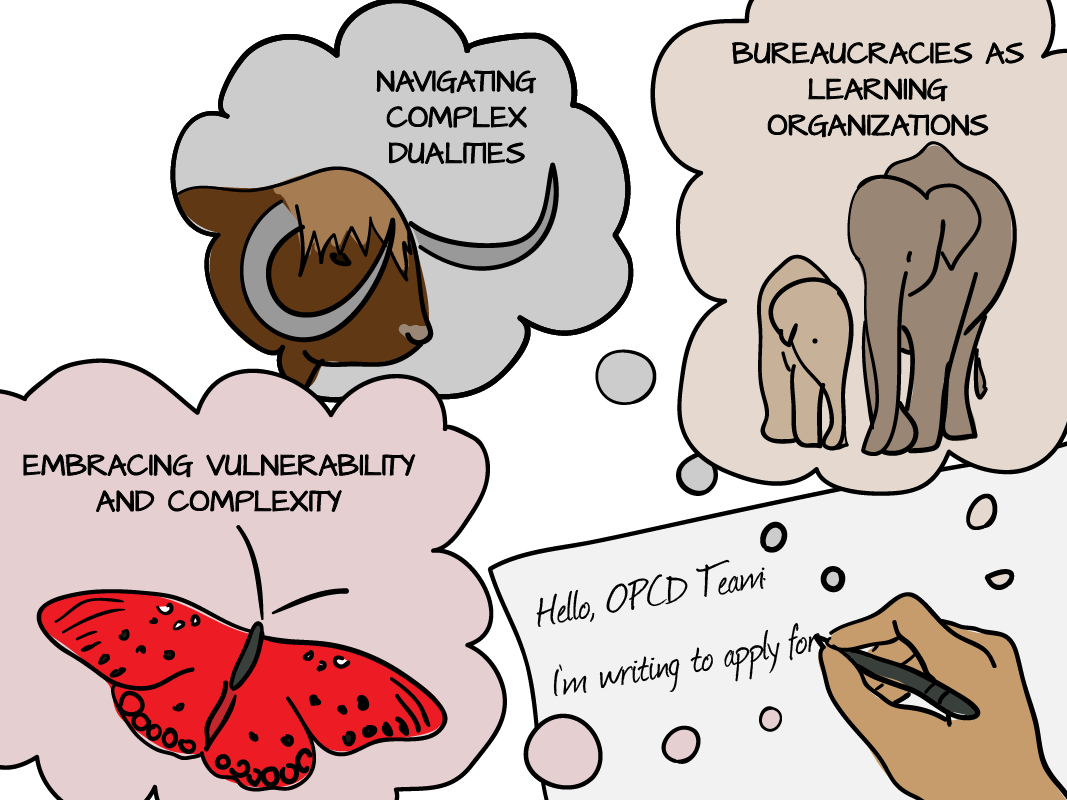Why did I take a job at the City?
In June, I began working at the City of Seattle’s Office of Planning and Community Development, as the Real Estate Strategist. There is so much to say, and I hope to have an essay for your thoughts soon.
For now, here’s the cover letter that accompanied my application for this job. It reflects how much the Between Americans experience has influenced me, and how much I hope it will continue to. I hadn’t planned to make this public, but I’m posting it here to stay accountable to these intentions.
(Note: In the months since I wrote this letter, Kyana Wheeler, Kelly O’Brien, Yuni Castorena, and Iman Ibrahim at the Office of Civil Rights have inspired me to name racial inequities more directly in my work. That significant room for improvement is evident in the words below. There are other cover-letter-y phrases that feel silly to share publicly, but this is part of an experiment in transparency.)

Hello, OPCD Team:
I’m writing to apply for the Real Estate Strategist position. I’m excited by the prospect of collaborating with a team that’s striving for more adaptive and inclusive approaches to public service.
The stewardship of urban change and belonging is rooted in complex dualities: the facelessness of land value vs. the human lives connected to that land; the structure of accountability vs. the chaos of creativity. I’m fascinated by the process of navigating these kinds of complexities.
Below are some themes from the job description that I’d like to speak to.
Experience with Long-range Community-Informed Strategy
At a recent facilitation training in Tacoma, I hosted a conversation around the following question: How can bureaucracies be better learning organizations? The group’s conversation kept returning to the need to shift our mental models.
The first shift is away from understanding accountability as a checklist, to thinking of accountability as the stewardship of complex relationships.
The second shift is from understanding solutions to be final answers—a policy fix that ends homelessness, a financing lever that ensures housing affordability—and toward understanding solutions to be a continual process of dialogue that enables a society to adapt to change.
The conversation deeply resonated with my own mindset. I think it’s vitally important for a learning bureaucracy to be very open about where its experiments not only succeed, but falter, or even fail.
Concretely, I would be interested in continuing to blog, write, or lead workshops about the team’s work and the lessons that we learn. I believe that kind of vulnerable communication is a critical ingredient in true long-term strategy that is made wiser by community input.
I can also describe what strategy does not mean, to me. [Note: I’ve deleted some sentences here that describe a past example, from another public agency, of a bureaucratic strategy that meant well and was even painstakingly built on public input, but which failed to be responsive, adaptable, and flexible. Publicly critiquing another public agency doesn’t seem appropriate here, now that I’m in one and we all have room for improvement.] This solution, while lawsuit-proof, ultimately turned these TOD sites into left-brained spreadsheets first and foremost, with creative synergies left as afterthoughts.
I provide this as an example of the cost of traditional, rigid forms of accountability and strategy. The goal, after all, is a city that continues to feel alive. And so, I think that the essence of public strategy is, in fact, not a map of paths and answers, but rather a process of constant feedback and inquiry.
In that vein, I offer my experience in facilitating conflicted conversations as one strong asset in a Real Estate Strategist position. I am constantly drawn to the complexity of disagreement, and to holding spaces where it’s safe to access the vulnerability that helps us find belonging together in the face of our differences. I value my ability to help teams stay open and curious, to step back from the day-to-day and to keep an eye on the bigger questions.
I don’t expect this position to represent a 180-degree shift away from mechanical and technical approaches to public policy, which is the kind of sea change that could take generations and would require give-and-take on the community’s side as well. But in the meantime, I welcome opportunities to experiment with small shifts at the team level in the City, through this position.
Experience with Social Equity and Breaking Down Silos
On the Design Review Board, I saw my role to be that of balancing market realities with design idealism. That complex balance requires the collective intelligence of multiple people with varying expertise, and I loved the a-ha moments of win-win ideas that could emerge from even the curtailed 20 minutes allotted to Board deliberation.
Developing Pike Place Market and Plaza Roberto Maestas was a similar kind of alchemy. My job was to get into the weeds, and then step back to give simple explanations to our clients on what was happening. Our clients would often offer unconventional ideas, or bigger-picture goals that required us to do things differently. That mix made the finished projects come alive.
Inequity chafes at me in the same way that other forms of wasted collective wisdom do. It is self-defeating to be a city that is less than the sum of its parts. And I believe that systemic inequity comes from the same fear of vulnerability and complexity as the structures of control and certainty that I’ve described earlier.
Last November, when I organized We the Public, a one-night arts event at Westlake Park, I also confronted my own habits of rigidity and structure. Coming from a background in development project management, I am quite comfortable with checklists and to-do items. As long as I ran meetings with artist-volunteers through a checklist, however, the event would never be greater than the extent of my own imagination.
When I began throwing the reins out of my hands, we began to congeal as a kind of organic and sticky community that is sometimes hard to come by in the contracts-and-insurance-fortified world of real estate development.
That feeling of joy and collective purpose, the glue of a community that needs each other to make something happen, is a feeling that I aspire to more often. I hope to help facilitate more such experiences in this position, and to seek opportunities for creative approaches to togetherness in complexity.
Thank you! I look forward to hearing from you, however you choose to proceed.


Leave a Reply